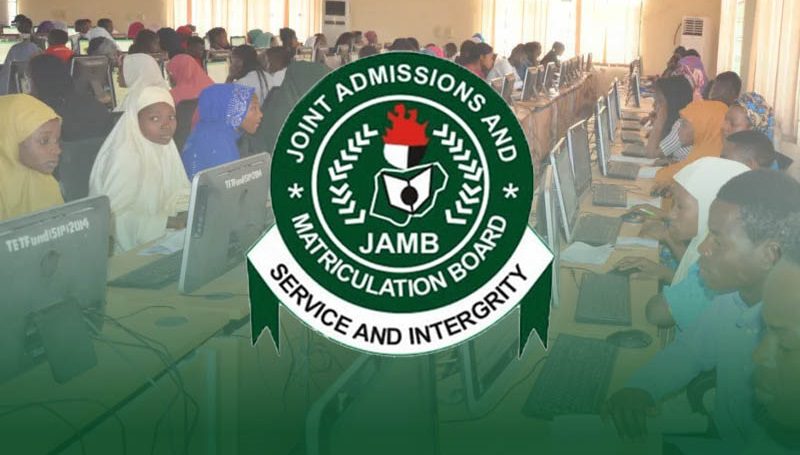
WAEC 2025/2026 History Obj & Theory Answers
HISTORY OBJ
1ADABDDBBAA
11DABDCDDBAC
21ACDCADABCB
31CACBCBCCCC
41ABDADAACDB
Completed!
(1a)
(i)Archaeological findings
(ii)Oral traditions
(iii)Linguistic evidence
(1b)
(i)Susceptibility to Change Over Time; Oral traditions are vulnerable to alterations, omissions, or additions as they are passed down through generations. As stories are retold, details may be modified, intentionally or unintentionally, which can lead to inaccuracies and distortions.
(ii)Lack of Fixed Record; Unlike written records, oral traditions do not provide a fixed or permanent account of events. This fluidity makes it challenging to establish a reliable and consistent narrative, as the story can change with each retelling.
(iii)Influence of Cultural and Social Factors; Oral traditions often reflect the cultural, social, and political contexts in which they are transmitted. This can result in biased or selective representations of historical events, highlighting certain aspects while downplaying or omitting others.
(iv)Difficulty in Establishing Chronology;
Oral traditions often lack precise chronological frameworks, making it difficult to determine the exact timing of events or to reconstruct a coherent timeline. This can limit the usefulness of oral traditions for historians seeking to understand the sequence of events.
(2a)
(i)The Agbala Oracle of Awka
(ii)The Ibini Ukpabi Oracle of Arochukwu
(iii)The Igwekala Oracle of Umunneoha
(2b)
(i)Strategic Location Arochukwu’s; geographical location allowed for control over trade routes between the Igbo heartland and the coastal regions. This strategic position enabled them to regulate the flow of goods and people.
(ii)Strong Network and Diplomacy; The Arochukwu people established strong diplomatic relationships with neighboring communities and European traders. This network facilitated trade agreements, alliances, and the exchange of goods.
(iii)Economic and Commercial Acumen; The Arochukwu demonstrated economic and commercial acumen by controlling key trade goods, such as slaves, ivory, and other commodities. They leveraged their knowledge of local markets to dictate prices and terms.
(iv)Influence of the Oracle of Arochukwu; The Oracle of Arochukwu, also known as the Ibini Ukpabi, played a significant role in the region’s spiritual and commercial life. The oracle’s influence helped to establish Arochukwu’s authority and facilitated trade by providing a sense of stability and legitimacy.
(3)
(i)Agricultural Advancement; Iron tools, such as hoes and machetes, significantly improved agricultural productivity. With iron implements, farmers could clear land more efficiently, cultivate crops more effectively, and increase their yields, leading to better food security.
(ii)Enhanced Hunting and Warfare; Iron weapons, such as spears and swords, gave hunters and warriors a significant advantage. Iron-tipped tools allowed for more effective hunting, providing a steady food source, and stronger warfare capabilities, enhancing security and defense.
(iii)Craft Specialization and Economic Growth; The availability of iron enabled the development of various crafts, such as blacksmithing, which became a specialized profession. This led to economic growth as craftsmen produced goods for local use and trade, stimulating commerce and industry.
(iv)Improved Infrastructure and Construction; Iron tools facilitated the construction of homes, bridges, and other infrastructure. With iron implements, people could more easily clear land, dig foundations, and shape wood, leading to better-built structures and communities.
(v)Increased Social Complexity and Organization; The introduction of iron technology allowed for increased social complexity and organization. As agriculture and trade flourished, societies became more complex, with specialized labor, social hierarchies, and more sophisticated systems of governance.
(4)
(i)Armed Resistance: Many Nigerian communities, such as the Esan people, vehemently resisted British invasion and colonial rule. They fought bravely against the British troops, often with traditional weapons, but were ultimately overpowered due to the British superior arms. The Esan people, in particular, were known for their strong belief in self-determination and fought against the loss of their sovereignty.
(ii)Diplomatic Resistance: Some Nigerian leaders attempted to negotiate with the British, signing treaties that they often didn’t fully understand. This led to misunderstandings and further resistance. For example, the British would often use trickery to get Nigerian leaders to sign documents that would give them control over their lands.
(iii)Religious-Based Resistance: The introduction of British colonial rule led to resistance from Nigerian communities who saw it as a threat to their cultural and religious practices. Some communities resisted the British attempt to impose their values and customs on them.
(iv)Formation of Tribal-Based Resistance Groups: As the British colonial rule progressed, various ethnic groups came together to form resistance groups. These groups were often based on tribal lines and were formed to fight against British colonial rule. Nigerian students who studied abroad also played a significant role in facilitating resistance.
(v)Labor Movements and Protests: Nigerians also resisted British colonial rule through labor movements and protests. Workers and students would often go on strike, putting pressure on the British to initiate reforms. The rise of educated Nigerians familiar with democratic principles also contributed to the growth of nationalist sentiments.
(5a)
(i)Church Missionary Society (CMS)
(ii)Wesleyan Methodist Missionary Society (WMMS)
(iii)Baptist Missionary Society (BMS)
(5b)
(i)Evangelism and Spreading Christianity; One of the primary reasons Christian missionaries came to Nigeria was to spread the teachings of Christianity and convert the local population to the faith. They believed it was their duty to share the message of Jesus Christ with people from different cultures and backgrounds.
(ii)Humanitarian and Philanthropic Work; Missionaries also came to Nigeria to provide humanitarian aid, such as medical care, education, and social services. They aimed to improve the lives of Nigerians and alleviate suffering, often in response to specific needs or crises.
(iii)Exploration and Expansion; The era of European exploration and expansion led to increased interest in Africa, including Nigeria. Missionaries often accompanied explorers and traders, using these opportunities to establish themselves in new territories and spread their message.
(iv)Colonial and Imperial Interests; In some cases, missionaries were also motivated by or associated with colonial and imperial interests. They may have seen their work as part of a broader effort to “civilize” or modernize non-European societies, which aligned with the goals of European colonial powers.
(6)
(i)Consolidation of Power and Stability; Mohammed Bello played a crucial role in consolidating power and maintaining stability within the Sokoto Caliphate after its founding by Usman dan Fodio. He worked to establish a strong and effective administrative system.
(ii)Administrative Reforms; Bello implemented various administrative reforms to ensure the efficient governance of the caliphate. He established a system of governance that included appointing officials to oversee different regions and aspects of administration.
(iii)Promotion of Islamic Education and Scholarship; Mohammed Bello was a strong advocate for Islamic education and scholarship. He encouraged the spread of Islamic knowledge and promoted the establishment of schools and centers of learning within the caliphate.
(iv)Economic Development and Trade; Bello contributed to the economic development of the Sokoto Caliphate by promoting trade and commerce. He encouraged the growth of markets and trade routes, which helped to strengthen the economy.
(v)Military Campaigns and Expansion; Mohammed Bello led military campaigns to expand the borders of the Sokoto Caliphate and protect its interests. His military efforts helped to secure the caliphate’s territory and spread Islam in the region.
(7)
(PICK ANY FIVE)
(i) Unification of Nigeria (1914): The amalgamation of the Northern and Southern Protectorates along with Lagos into a single entity under British rule, which laid the foundation for modern Nigeria.
(ii) Introduction of the Clifford Constitution (1922): This was the first constitution to give Nigerians a limited role in governance by allowing for the election of members to the legislative council, albeit with restricted suffrage.
(iii) Creation of Regional Governments (1946): The Richard’s Constitution of 1946 created regional governments, which helped in the decentralization of power and gave more autonomy to the regions (Northern, Western, and Eastern regions).
(iv) Formation of Political Parties (1940s-1950s): Political organizations like the NCNC (National Council of Nigeria and the Cameroons), Action Group, and Northern Peoples Congress played a crucial role in the push for independence and self-governance.
(v) Expansion of Education (1940s-1960s): Under the British administration, there was significant investment in education, which led to the establishment of more schools and the development of higher education institutions, like the University of Ibadan in 1948.
(vi) Economic Development Plans (1950s): The British administration introduced economic policies aimed at modernizing agriculture, industry, and transportation, such as the 1946 and 1954 Development Plans, to foster the growth of the Nigerian economy.
(vii) Independence Movement (1950s-1960): The Nigerian government played a role in the negotiation and preparation for Nigerian independence, culminating in Nigeria achieving self-rule on October 1, 1960.
(viii) International Relations and Diplomacy (1950s-1960): Nigeria’s involvement in international diplomacy, including the establishment of Nigeria’s role in the British Commonwealth and its eventual engagement with the United Nations in 1960, helped solidify its standing as a prominent nation on the African continent.
(8)
(PICK ANY FIVE)
(i) Suppression of Civil Liberties: Military regimes often suspended or limited fundamental human rights, such as freedom of speech, assembly, and the press. This resulted in widespread censorship and the suppression of opposition voices.
(ii) Weakening of Democratic Institutions: Military rule undermined democratic institutions by dismantling or weakening the legislative, judicial, and executive branches of government. This led to the erosion of checks and balances within the system.
(iii) Corruption: Military leaders often engaged in corrupt practices, embezzling state funds and enriching themselves and their allies. The lack of transparency and accountability during military regimes exacerbated corruption at all levels of government.
(iv) Human Rights Violations: Military regimes frequently engaged in gross human rights abuses, including arbitrary arrests, torture, and extrajudicial killings, especially of political opponents or those perceived as a threat to the regime.
(v) Stagnation of Economic Development: Military governments often failed to prioritize long-term economic development, leading to mismanagement of resources, inflation, and poverty. Many military regimes focused more on maintaining power than on fostering sustainable growth.
(vi) Increased Unemployment and Poverty: Due to poor economic policies, the military governments led to a decline in industries and agriculture, leading to widespread unemployment and an increase in poverty levels across the country.
(vii) Political Instability: The frequent coups and changes in leadership during military rule created a cycle of political instability, which hindered national development and made it difficult for the country to maintain steady progress.
(viii) Loss of International Credibility: Military regimes often faced condemnation from the international community for violating democratic principles and human rights, leading to sanctions and a loss of global respect and support. This hindered Nigeria’s diplomatic relationships and international development prospects.
(9)
(PICK ANY FIVE)
(i) Peacekeeping Operations: Nigeria has played a significant role in UN peacekeeping missions, particularly in Africa. Nigerian troops were involved in peacekeeping operations in places like Congo (1960-1964), Namibia (1989), and Somalia (1992-1995), demonstrating its commitment to global peace.
(ii) Support for Decolonization: Nigeria strongly supported the decolonization of African countries. It advocated for the independence of various African nations, such as Angola, Guinea-Bissau, and Mozambique, and helped push for the end of apartheid in South Africa.
(iii) Promotion of Human Rights: Nigeria was an active proponent of human rights and worked within the UN to advance global human rights norms, including advocating for the rights of women, children, and indigenous populations.
(iv) Leadership in African Affairs: Nigeria was a key player in the Organization of African Unity (OAU) and its successor, the African Union (AU), and worked closely with the UN to address issues affecting Africa, such as conflict resolution, poverty reduction, and health challenges.
(v) Role in UN General Assembly: Nigeria has been an influential member of the UN General Assembly, serving as a non-permanent member of the Security Council on several occasions, and consistently pushing for reforms to ensure more equitable representation for African countries in international decision-making.
(vi) Contributions to the UN Development Programme (UNDP): Nigeria has made significant contributions to the UNDP, focusing on issues like poverty alleviation, sustainable development, and enhancing education and healthcare within Africa.
(vii) Advocacy for Debt Relief: Nigeria advocated for debt relief for developing countries, especially African nations, urging the UN to take action on the crippling debt burdens of many poor nations, and contributing to the establishment of the Highly Indebted Poor Countries (HIPC) initiative.
(viii) Support for Global Disarmament: Nigeria was an active supporter of global disarmament initiatives, particularly the prohibition of nuclear weapons, and worked with the UN on policies aimed at reducing the spread of weapons of mass destruction.
Share This Post: This post can be helpful to your friends or classmates, you can share it using the buttons below!












Leave Your Comment